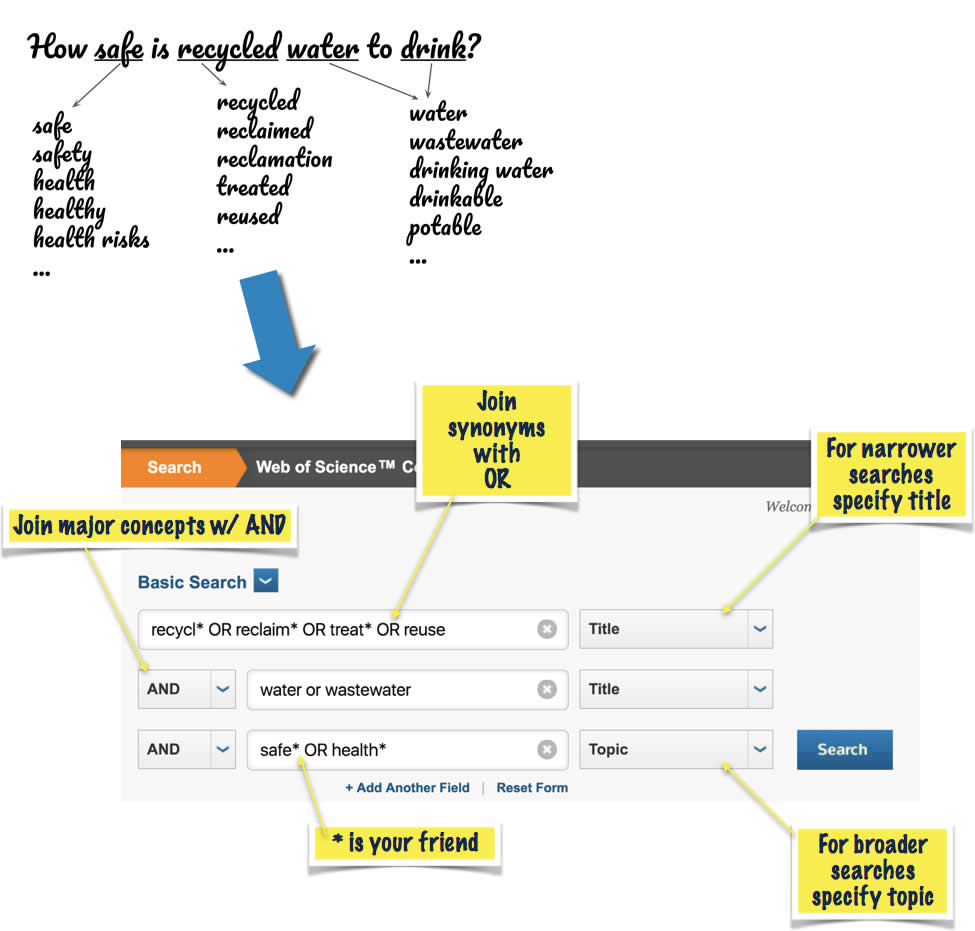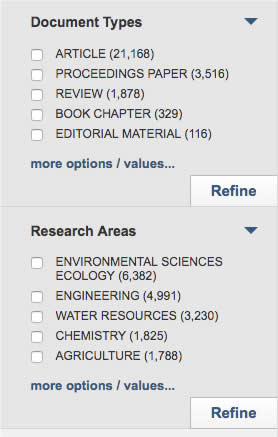Rather than trying to construct one perfect search, plan on trying several experimental searches. As you search, seek out diverse perspectives by using a variety of keywords. Look for interdisciplinary perspectives on your topic by trying out your searches in more than one database .
Try a Search
Find one or more research guides related to your project. Choose a few databases and search tools and start exploring.
Turn your notes, ideas, and questions about your topic into keywords for search. If the database you are using has an "advanced search" use it! Advanced search will allow you to experiment with using a variety of keyword synomyms to explore your topic.

Filter Your Search
Most databases have a set of powerful filtering tools, usually on the left side of the screen when you search. Use these to refine your search results and learn new search terms.

Tips
-
If you're not sure which database to use, try starting with a multi-disciplinary database like Web of Science, Academic Search Complete, or ArticlesPlus to explore your topic.
-
Use your initial searches to collect new keywords for future searches. You may find useful new keywords in titles, abstracts, and subject headings.
-
In your initial searches expect that sometimes you wil find too many results, and other times not enough. Be patient as you use your initial searches to explore your topic and build the collection of keywords you are using for search.
-
As you find keywords that seem to be working, remember to mix and match with other keywords to see if you uncover any new or unexpected results.
Related Resources
About this tutorial
Authors
Learning Outcomes
- Use a variety of keywords to search for sources
- Broaden and narrow search results (using tools such as Boolean Operators, etc.)
- Refine your search using database filtering tools